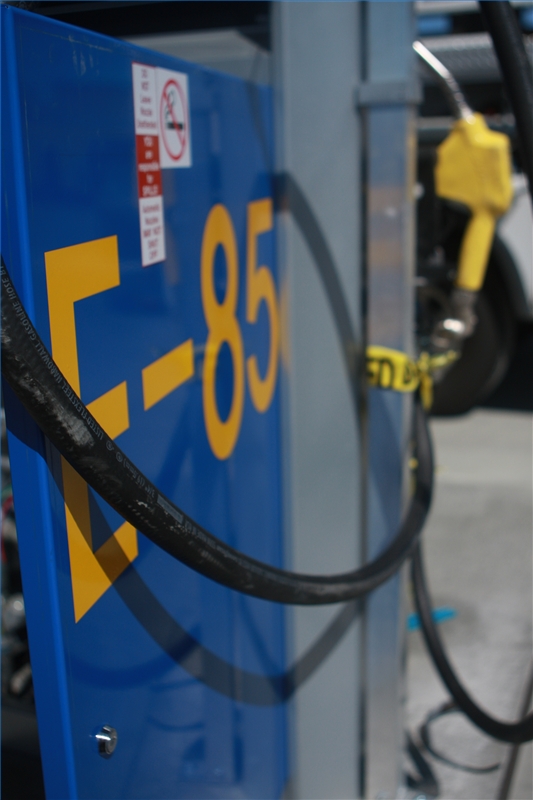
E85 is an alternative fuel that has gained a foothold in the U.S., particularly in the Midwest, but not every vehicle can use this fuel. As of August 2009, most of the vehicles that can use it are American---but some other makes have gotten aboard the ethanol train as well.
E85 is a combination fuel comprising a mixture of up to 85 percent ethanol and 15 percent or more gasoline. Ethanol is a grain alcohol that is most often made from corn but that can be made from sugar cane and other starches, including agricultural waste products.
In the 1880s, Henry Ford built the first ethanol-powered car. Later, a 1908 Model-T was built to run on either gasoline or ethanol. More than 100 years later, this technology is still in use and undergoing refinement.
The brand with the most E85-friendly vehicles on the market is General Motors. Most of these are large trucks and SUVs, though the Chevrolet Monte Carlo, Impala and HHR are also on this list. Other GM E85-compatible cars include the Buick Lucerne and Pontiac G6. GM's offerings feature yellow badges that advertise their "Flex Fuel" abilities (meaning they can use traditional gasoline or E85), but a GM survey found that almost 70 percent of owners of GM flex-fuel vehicles were unaware that their cars had this capability.
Other auto manufacturers offering E85-friendly vehicles include Ford, Chrysler, Toyota, Nissan, Isuzu, Mazda, and Mercedes. See Resources for a full list of E85-friendly vehicles listed by manufacturer.
E85 fuel is not yet widely available in the U.S. Most E85 stations are concentrated in corn-producing states in the Midwest, such as Illinois and Iowa.
As of August 2009, vehicles running E85 fuel produce an estimated 27 percent less energy than when fueled with the equivalent amount of gasoline. Therefore, more trips to the E85 station are necessary, and more money is spent to run this fuel.
E85 vehicles are priced the same as traditionally fueled vehicles, unlike some other vehicles running alternative forms of energy.
Not all environmentalists are fans of corn-based ethanol. In 2001, Cornell University scientist David Pimentel published a study that lambasted ethanol production as "subsidized food burning." He analyzed production of ethanol from both an economic and an environmental standpoint and found it severely lacking in both arenas. See Resources for more details of the study. Some companies are focusing on ethanol produced from switchgrass and other sources that would make production more energy-efficient. The U.S. Department of Energy says corn-based ethanol produces 20 percent fewer greenhouse gases than traditional gasoline.